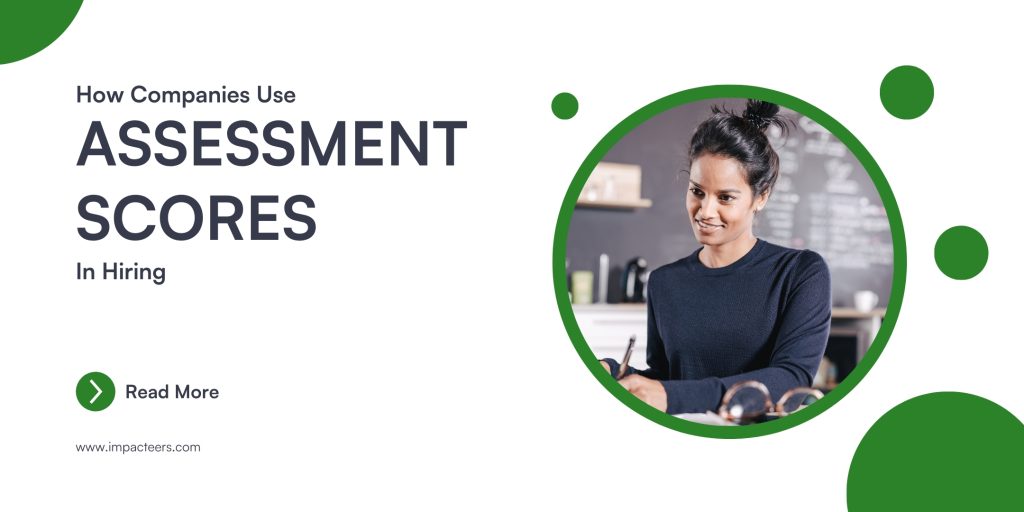For students and job seekers, skill assessment reports are more than just numbers—they’re insights into strengths, weaknesses, and job readiness.Whether you’re an engineering student taking your first career assessment test, a professional brushing up on your communication abilities, or someone preparing for a big job interview, a skill assessment report can tell you a lot more than just a score.

It’s more than a piece of paper—it’s a roadmap to your strengths, your gaps, and your potential. Yet, many people think of it as simply a “pass or fail” outcome. That’s where the misunderstanding begins.
In this article, we’ll break down:
- What a skill assessment report is
- How companies and recruiters use it
- The right way to interpret your scores
- How to use the information to upgrade yourself
- Why platforms like Impacteers Skill Assessment are making this process smarter and easier
By the end, you’ll not only understand your reports better but also know how to act on them.
Visit us >>>https://www.impacteers.com/home/skillassessment
1. What is a Skill Assessment Report?
A skill assessment report is the detailed output you receive after taking an assessment test. This could be a test on:
- Technical skills (e.g., coding, engineering problem-solving)
- Soft skills (e.g., teamwork, communication, leadership)
- Cognitive abilities (e.g., logical reasoning, analytical thinking)
The report gives more than just a percentage—it tells you:
- Where you excel
- Where you need improvement
- How your skills compare to industry benchmarks
- Sometimes, recommendations for future learning
Think of it as a health check-up, but for your career skills.
2. Why Companies Value Skill Assessment Reports
If you’ve ever uploaded your score on LinkedIn, you already know that recruiters care about numbers. But here’s why:
- Objective evaluation – Instead of relying only on resumes, recruiters can see measurable results.
- Skill-based hiring – Companies want to match the right talent to the right role.
- Training investment – They can see which employees need more training in a specific area.
Example:
An IT company hiring freshers may run a coding test. Those who score high in logical reasoning and problem-solving are prioritized for interviews. Those with lower scores may still be hired but placed into additional training before joining.
3. The Structure of a Skill Assessment Report
While formats vary, most reports from platforms like Impacteers include:
- Overall Score – Your total performance across all sections.
- Section-wise Breakdown – Scores for individual skills like verbal ability, logical reasoning, or domain-specific knowledge.
- Benchmark Comparison – How your score compares with the average of other test takers.
- Time Management Analysis – How effectively you used the given time for each question.
- Strengths & Weaknesses Summary – A quick view of where you shine and where to focus improvement.
- Recommendations – Suggested resources, courses, or practice exercises.
4. How to Read Your Report Effectively
Here’s the process to follow when reading a skill assessment report:
Step 1: Don’t Rush to the Overall Score

The big number at the top can be tempting, but your real learning comes from section-wise analysis.
Step 2: Look for Consistency
Scored well in engineering problem-solving but poorly in communication? That’s a sign to balance your profile.
Step 3: Check Time vs Accuracy
If you spent too much time on certain questions but still got them wrong, it’s a flag for improving thinking speed and clarity.
Step 4: Understand the Benchmarks
If your score is 70% but the industry average is 85%, it’s a sign to upgrade yourself.
Step 5: Take the Recommendations Seriously
Good reports don’t just point out weaknesses—they tell you how to improve. Platforms like Impacteers include action steps to move forward.
5. Common Misconceptions About Skill Assessment Reports
- My score is low, so I’m not good at this skill.
Not necessarily—maybe you misunderstood the question format or lacked test strategy.
- High score means I don’t need to improve.
Even top scorers have areas to refine.
- It’s just for the recruiter.
No—it’s equally valuable for self-management and long-term career growth.
6. How Recruiters Use Your Scores
Recruiters often think beyond just “pass/fail.” They may:
- Shortlist candidates for interviews based on top percentile scores.
- Use your report during interviews to ask deeper questions.
- Recommend internal training programs if you join the company.
Some companies even keep your reports on file for future opportunities—especially if you’ve shared them on LinkedIn.
7. The Link Between Skill Reports & Career Growth
If you treat your report as just a “test result,” you’re missing its power. Used correctly, it can:
- Guide you toward courses that fill skill gaps.
- Help you negotiate for the right role in a company.
- Build your credibility when shared publicly.
Example: A fresher in India aiming for a marketing role could highlight a high communication score and share it online—this builds trust with recruiters instantly.
8. Using Impacteers Skill Assessment for Better Reports
Impacteers doesn’t just give you a score—it gives actionable insights.
- Detailed breakdowns across technical and soft skills.
- Recommendations that match your career goals.
- Clear, easy-to-read visuals for quick understanding.
- LinkedIn-friendly reports you can share with recruiters.
If you’re preparing for a job application, having an Impacteers report can give you a competitive edge over others who only submit resumes.
9. Turning Reports into Action Plans
Once you’ve read your report, here’s what to do:
- List your top 3 strengths – These are skills you can highlight in interviews.
- Pick 2-3 improvement areas – Focus your training here.
- Set a timeline – Decide how many weeks you’ll dedicate to improvement.
- Re-test yourself – Take another assessment after practice to track growth.
10. Tips for Improving Future Scores
- Practice mock tests before the real one.
- Work on time management—don’t spend too long on one question.
- Develop exam strategies—start with your strongest sections first.
- Take communication training if your verbal scores are low.
- Learn from your mistakes—don’t just re-read correct answers; analyze wrong ones.
Conclusion
A skill assessment report is more than a test result—it’s a personal career map. When read correctly, it tells you where you are today, where you can go tomorrow, and how to get there.
Instead of treating it as a one-time exam outcome, use it for continuous self-management and career planning.
With tools like Impacteers Skill Assessment, you not only get accurate reports but also clear steps to grow—making you more confident, more skilled, and more employable.
5 FAQs on Skill Assessment Reports
1. What does a skill assessment report include?
It typically includes your overall score, section-wise breakdown, benchmark comparisons, time analysis, and improvement recommendations.
2. How do companies use skill assessment reports?
They use them for hiring decisions, training plans, and evaluating candidate potential beyond resumes.
3. Can I share my skill assessment report on LinkedIn?
Yes—sharing your scores can boost your professional credibility and attract recruiters.
4. Are skill assessment tests only for job seekers?
No—they’re also useful for students, professionals, and anyone looking to track and improve skills.
5. Why choose Impacteers for skill assessments?
Impacteers offers in-depth reports, personalized recommendations, and LinkedIn-friendly formats for better career visibility.
Learn More >>>https://blog.impacteers.com
About Us >>> https://www.impacteers.com



Post Comment